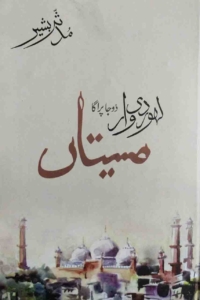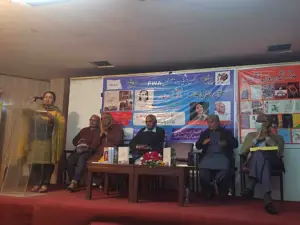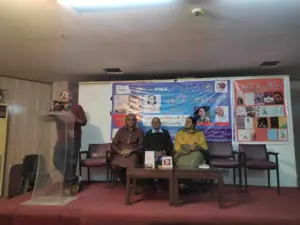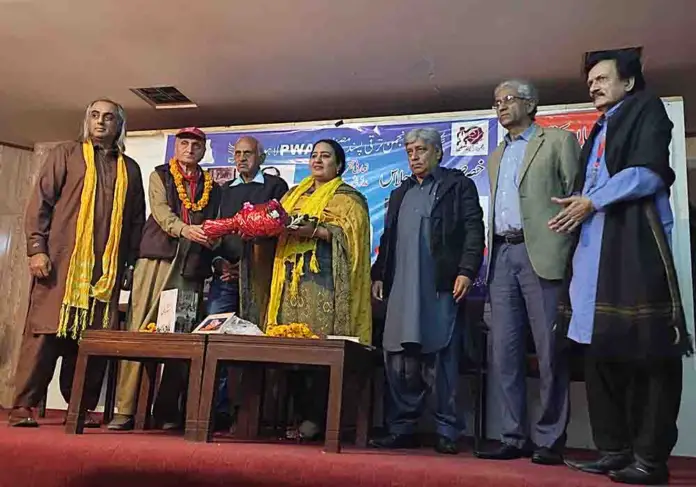Progressive Writers Association Lahore, Punjab on Sunday held an opening book ceremony, “Lahore Di Var Duja Praga: Maseetan”, written by renowned Punjabi historian and fiction writer Muddassar Basheer.
The book launch took place at the Cafeteria, PILAC, Qaddafi Stadium, Lahore, as part of a special Punjabi gathering of the Progressive Writers Association.
While discussing various sections of the book, the speakers referred to it as a “must read” for research scholars and general readers, saying that it provided a deep insight into the culture and history of Punjab, particularly Lahore, as well as a direct link to the mosques.

“The book tells us about the evolution of mosques over time. Furthermore, it records incidents involving mosque construction and their direct impact on the formation of our culture,” they added.
Zahid Hassan, who presided over the event, said that the new book comprising of almost 256 pages, had left no area unexplored that was even remotely relevant to Lahore’s public life. He claimed that the author had uncovered important information about art, history, literary trends, and the cultural and social traditions that govern public life in the historic city.
The book must be published in Gurmukhi for a wider audience, according to Harkirat Kaur Chahal, chief guest from Canada and recipient of the Dahan Prize and numerous other awards from literary groups in Punjab. Muddassar, she said, had always promoted humanism, truth, and culture regardless of religion, caste, creed, or colour. She also congratulated Muddassar on his new book, which she found fascinating because it gave voice to lonely, non-living buildings.

“The tragedy for most of our fiction writers is that they lack the material to write worth-reading fiction, which they compensate for with imagery and other unnecessary details in the fiction,” said the guest of honour, Dr. Ghafir Shehzad.
“Because our fiction writers aren’t interested in reading, they aren’t well-versed in their culture. Mudassar’s work is enviable because he has a good understanding of culture and, when it comes to fiction writing, he avoids unnecessary imagery,” Shehzad added.
“The mosque is an important part of our culture,” guest of honour Amjad Tufail said. “In the sense that it preserves an integral part of our culture, Mudassar’s book is a must-read. Commercialism has had a negative impact on Lahore, and the rest of the city’s culture is doomed for the next twenty-five years. Lahore will not be restored unless the people of Lahore are restored,” he added.
The book’s author, Muddassar Basheer, stated that religion had always been used to achieve various political and personal goals. The book’s title suggests that it is about religion, but it is actually about how a specific element, such as a mosque, has played a significant role in history and how history can be viewed through such components. He stated that staying objective while writing a book is nearly impossible, but one can present things as they are.

“We are moving away from our culture in this technological era. Various multinational corporations are shaping our culture. For their gains, the corporate sector controls the way historians write history. It’s a little depressing that we’ve outsourced our heroes. We’ve forgotten our own Bhagat Singh, Rai Ahmad Khan Kharal, and Dulla Bhatti,” Basheer expressed his dissatisfaction.
“Language is the scent of a person by which he is identified,” the author said at the end of his speech. “We should be proud of our regional heroes and native languages. We must leave the technological race and move closer to man to maintain a solid connection to nature and culture,” he concluded.







